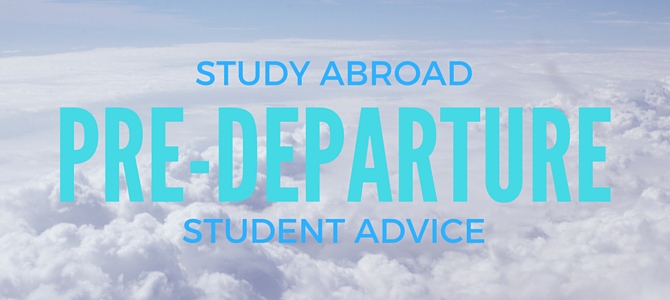Getting ready to choose a study abroad destination? Unsure of what to do next? Dheeraj Singh Rathore, a PhD UCD student from India, shares everything you need to know before departing for Ireland…
When I began preparing for my arrival in Ireland as a fully funded PhD student − I was nervous and excited in equal measures. I was fortunate to be connected to an Indian student already working in my supervisors’ lab who was a great help to me in my first months and became a fantastic friend. I know I was lucky and that many do not have the opportunity to connect with someone who will guide them through everything they need to know prior to landing in Ireland. In this blog, I aim to be that virtual friend! If you have any questions, leave me a comment below and I’d be happy to answer.
Making the big decision and gaining admission
The study abroad decision making process for me included choosing a country which was safe and friendly with a multicultural people, and English as a preferred language for communication. I wanted a university with a global reputation, interesting course options to build my career prospects, and finally one that I matched in terms of the eligibility criteria in order to gain admission.
Once I chose Ireland and University College Dublin, the admission process began and for me the first battle was tackling an English language aptitude test (known as IELTS: International English Language Testing System; and widely accepted in Ireland) to show my proficiency in reading, writing and speaking English. I needed to pass this test to fulfil UCD’s requirement for English proficiency. The next step is to apply for your preferred course at the university – in my case this was Biological and Environmental Science at UCD. This can be done online or by approaching the nearest university representative centre or at study abroad fairs which take place in most of the big cities in India throughout the year.
Visa application
The Irish visa authority accepts applications made online, and the process is relatively simple so please do not get misled by contacting agents. Visit the inis.gove.ie website to get the full list of Irish visa support documents you will need which generally includes a valid passport, recent colour passport size photographs, proof of acceptance from university to study a degree course, IELTS score card, sufficient funds in personal account to support your stay in Ireland – if not fully funded, proof of full fee payment – police clearance certificate and an international medical insurance. All the required documents such as educational certificates should be in English (get them translated to English, if they are not already). Education in Ireland runs a very helpful page for international students to assist in preparing for the visa and your arrival in Ireland.
When all these requirements are fulfilled, the visa is generally approved within 2-3 weeks, but may take up to 3 months. Don’t be surprised to see a visa approval for three months only even though you’re registered for one or more years for a course to study in Ireland. You’ll be fine.
Please note: the visa application process is subject to change. Visit the Irish Immigration and Naturalisation website for up to date information and contact your university international office prior to applying.
Flying to Ireland
Book your flight ticket and get your bags packed. Try to arrive a few days prior to the start date of your course. This will give you time to relax and settle in a different culture and environment.
Finding a place to stay
Once the flight date is decided, look for a suitable place to stay during your course of study. University accommodations are great and always near to your study centre, but they can be expensive. Shared student accommodation may suit your budget better or possibly a studio apartment, if you do not wish to share – check www.daft.ie or www.rent.ie for rental options. Staying with a host family is also a popular option for international students.
It’s advisable to get accommodation sorted before your arrival as at the moment in Ireland it is difficult enough to find a good place to stay for a reasonable price.
Now you’ve prepared for your safe landing in Ireland, it’s almost time to start your study abroad adventure! But, there are a couple of things to do after you arrive. Subscribe to the blog to catch my next post and don’t miss all the info you need once you get here…
Interested in studying in Ireland? Visit the Education in Ireland website for more information or find out more about attending an Education in Ireland pre-departure briefing in your India.

